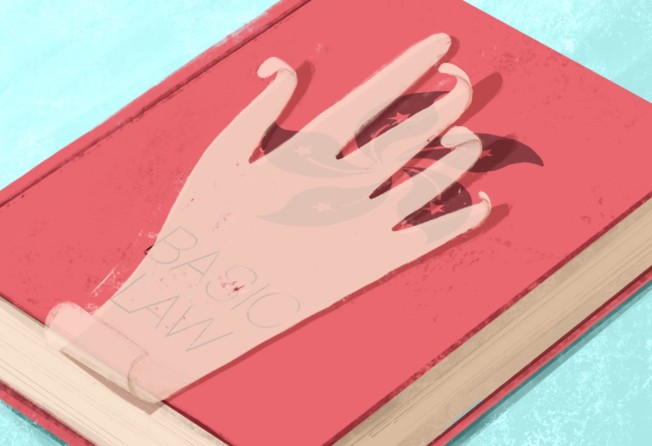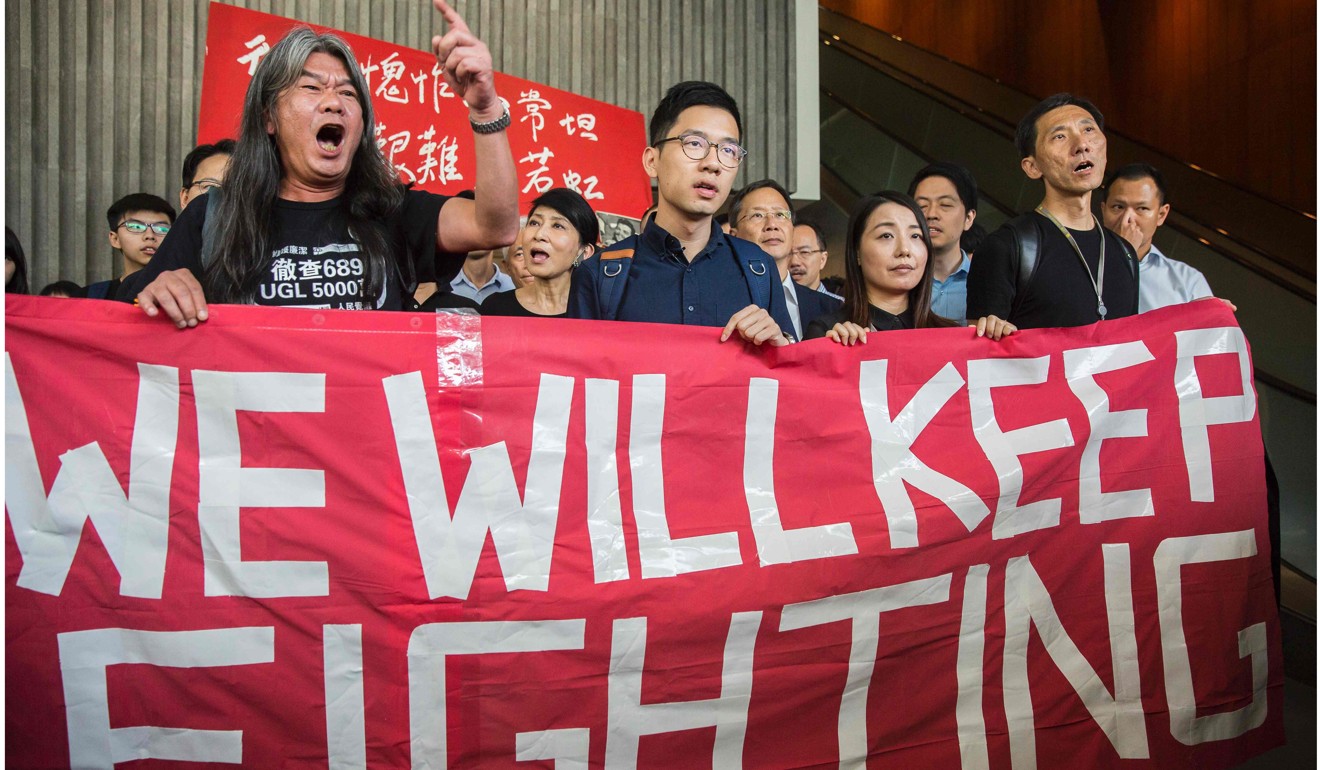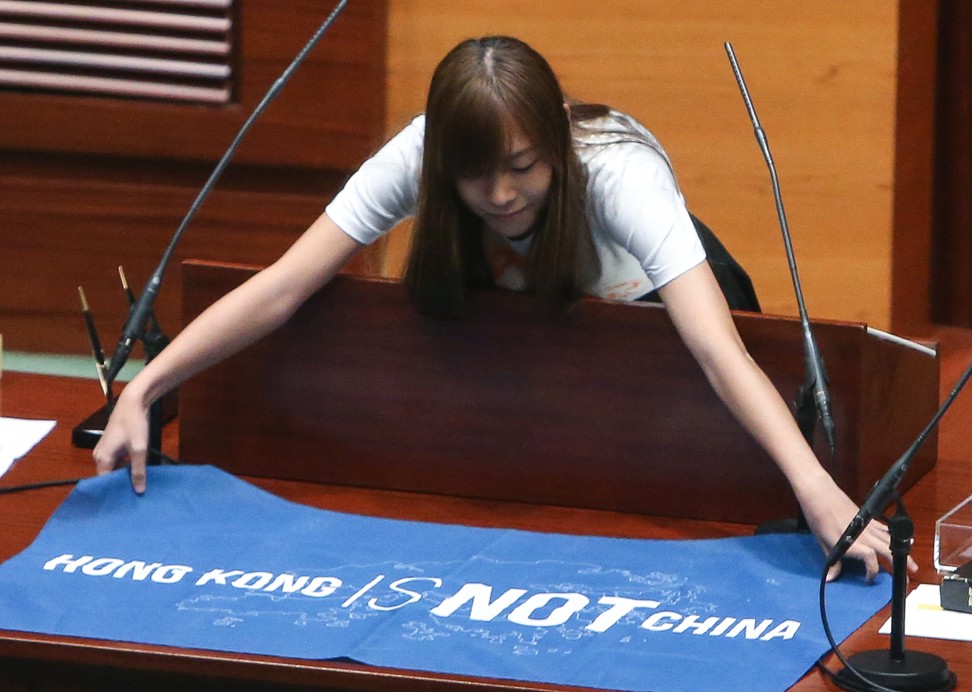Did all of Hong Kong’s disqualified lawmakers flout the basics of oath-taking?
Ryan Mitchell says an oath’s ultimate value rests on the hope that it will inspire consensus among reasonable political actors, but over-zealous prosecutions of minor variations could have the opposite effect

In the summer of 1789, France was in political crisis, with seemingly no prospect for a compromise. In this tense scenario, the members of the French Third Estate, representing all of the people aside from the clergy, nobility, and the king, arrived on the morning of June 20 to find that the army had locked them out of their own legislative chamber.
Suddenly barred from the affairs of government, the deputies sought the closest approximation to an assembly hall they could find.
Reconvening in a nearby tennis court, they then jointly vowed “not to separate, and to reassemble wherever circumstances require, until the constitution of the kingdom is established”.
This “Tennis Court Oath” was memorialised in an unfinished painting by the great artist of the French Revolution, Jacques-Louis David. With a sea of raised hands around the speaker, who reads from a text that seems to radiate authority, the image embodies the idea that the united people are the root of all legitimate government.
Despite this symbolic importance, oaths (unlike contracts) have no well-developed set of legal doctrines. As early as the 17th century, political theorist Thomas Hobbes noted that “the Oath addes nothing to the Obligation”. Consequently, it is often difficult to assess arguments about a given oath’s validity.
Watch: Four more Hong Kong lawmakers disqualified
This was underscored by US president Barack Obama’s retaking of his incorrectly administered first oath of office in 2009. Had the first one really been constitutionally ineffective? Probably not, but the decision to retake it was made “in an abundance of caution”. The main issue was maintaining the popular perception of legitimacy, not interpreting clear-cut legal rules.
The NPC’s interpretation of the Basic Law is legally binding
In the cases of the six disqualified Hong Kong lawmakers, similar concerns are clear in the mode of legal reasoning used by Justice Thomas Au Hing-cheung, particularly in his first opinion. Demonstrating that his decision did not follow solely from the National People’s Congress’ interpretation of Article 104 of the Basic Law, Au cited common law precedents involving parliamentary procedure in Britain, India and elsewhere. Yet a closer look at some of these precedents might give us pause as we consider how relevant they are today.
One case cited, Attorney General vs Bradlaugh (1885), did indeed hold that an improperly taken oath was grounds for disqualifying a British Member of Parliament, Charles Bradlaugh. The basis of the refusal, however, was Bradlaugh’s unwillingness, as an atheist, to be compelled to swear an oath to God instead of making the “solemn affirmation” sometimes allowed to religious minorities. This was a case in which an atheist was singled out for disqualification. Even at the time, this was regarded as scandalous by much of the educated public, and only three years later Bradlaugh successfully brought about the passage of the Oaths Act 1888, ensuring the rights of MPs to make solemn, secular affirmations from then on.
Much more recently, Haridasan Palayil vs The Speaker, Kerala Legislative Assembly (2003), centred on the choice of a new lawmaker in India’s Kerala state to neither take an oath to “God” nor make a secular affirmation, but swear to a historical guru. The court stated, “there is no doubt that Sree Narayana Guru was an apostle of virtue” but this did not mean it was constitutional to “vary the prescribed form of oath”. If such variations were allowed, “there would be no end [to it]”.
The true constitutional value of oaths is linked with the need for ‘political consensus’
Many in Hong Kong are probably concerned that there might “be no end” to the oath controversy. Both the theatrical protests at the swearing-in ceremony and the subsequent litigation have done more to draw battle lines than to promote solidarity. The cases could continue being a cause for mutual recriminations and outrage. This is a problem, for the true constitutional value of such oaths is linked with the need for “political consensus”, as described by German jurist Ernst Friesenhahn in 1928.
Legal theorist Carl Schmitt similarly saw in the oath the obligation “to actively support the constitution” and form of government. Both of these statist German legal thinkers would have very clearly understood the position of the NPC in its interpretation, and understood it as the main cause for Justice Au’s decisions. However, even they might take pause over some of the less clear-cut applications.

Vulgar insults and calls for independence are obviously signs that an elected representative does not intend to “actively support” the existing form of government. But does it really make sense to disqualify an oath-taker based on their tone of voice and the addition of a few words that are not in contradiction with the main text?
If the government is perceived as locking deputies out of the assembly chamber, it could spark increased protest
Such borderline cases need not be taken as signs of an “objective” refusal to commit to upholding the constitution and political community. Over-zealous prosecutions of such minor variations could have the opposite effect of provoking increased disaffection with the current constitutional arrangement.
The NPC’s interpretation of the Basic Law is legally binding, and so genuinely refusing to take the prescribed oath and support the existing constitution is a valid basis for disqualification. Nonetheless, if the government is perceived as “locking the deputies out of the assembly chamber”, rather than simply applying neutral rules of parliamentary procedure, it could easily spark increased protest and dissent.
An oath is a key embodiment of unity, but cannot by itself give rise to it. The most it can do is, as Friesenhahn writes, to “posit the indispensable political consensus”, in the hope that reasonable, cooperative political actors will see its value and endow it with their own constitutional faith.
Ryan Mitchell is an assistant professor of law at the Chinese University of Hong Kong
